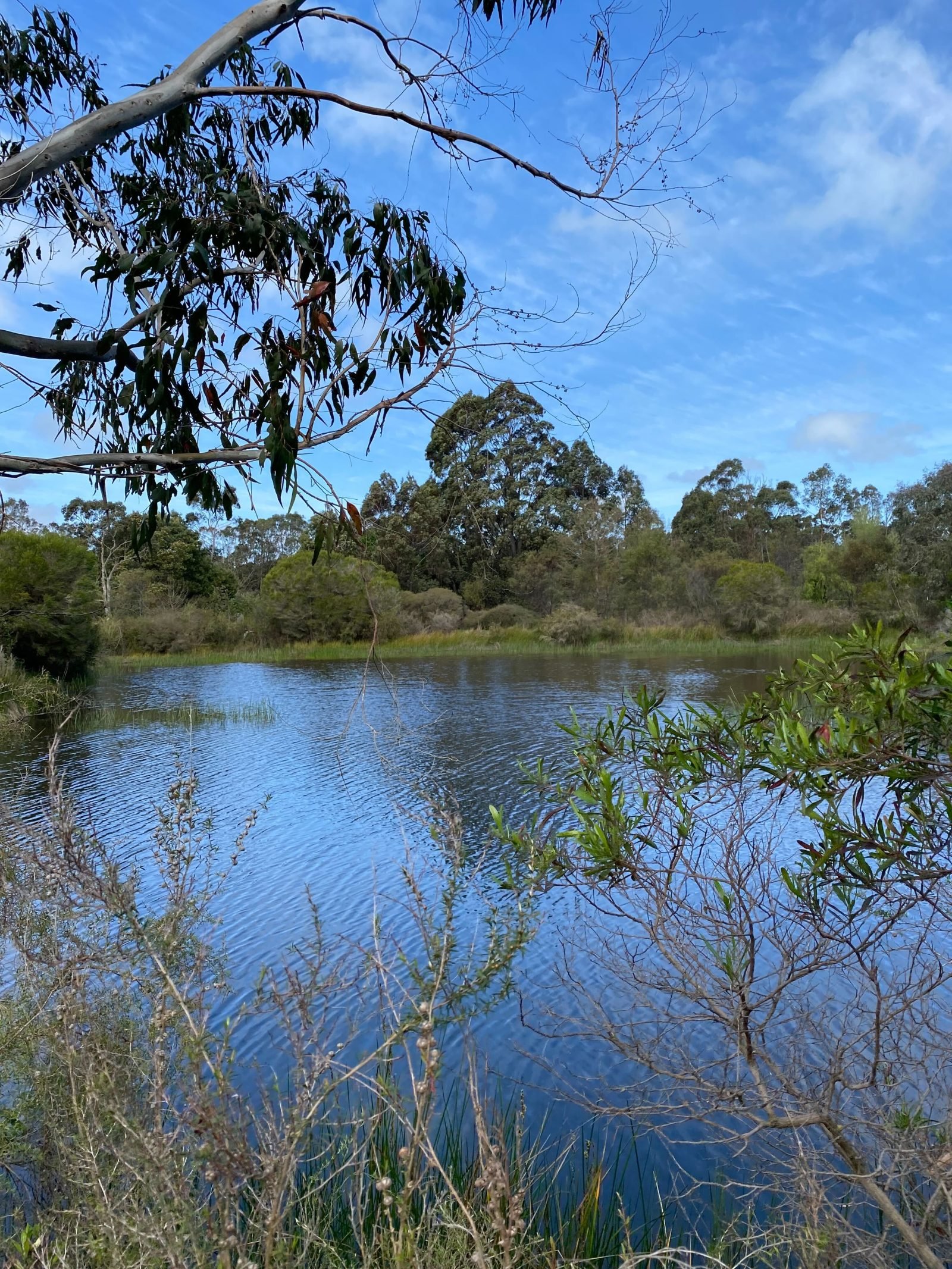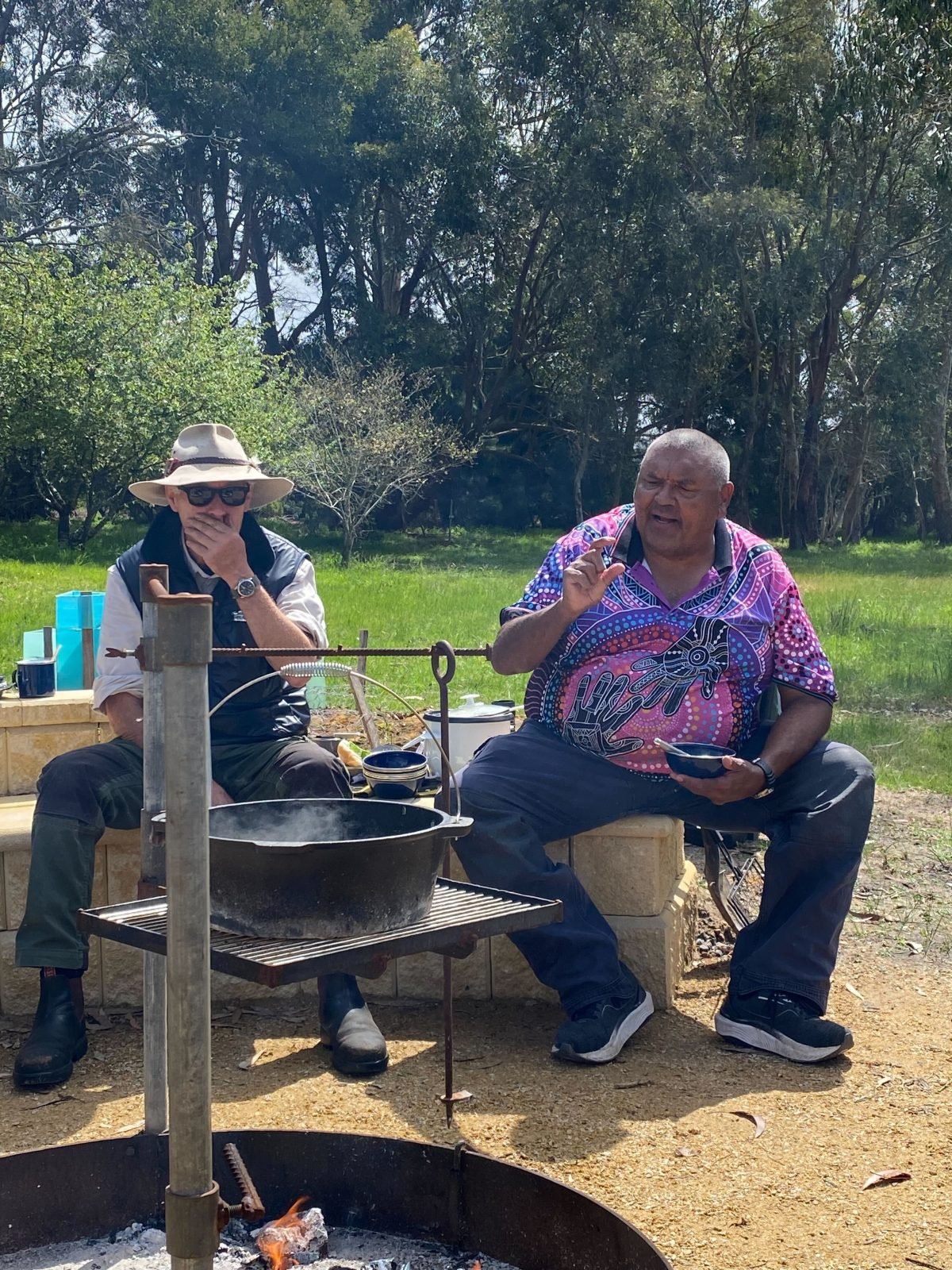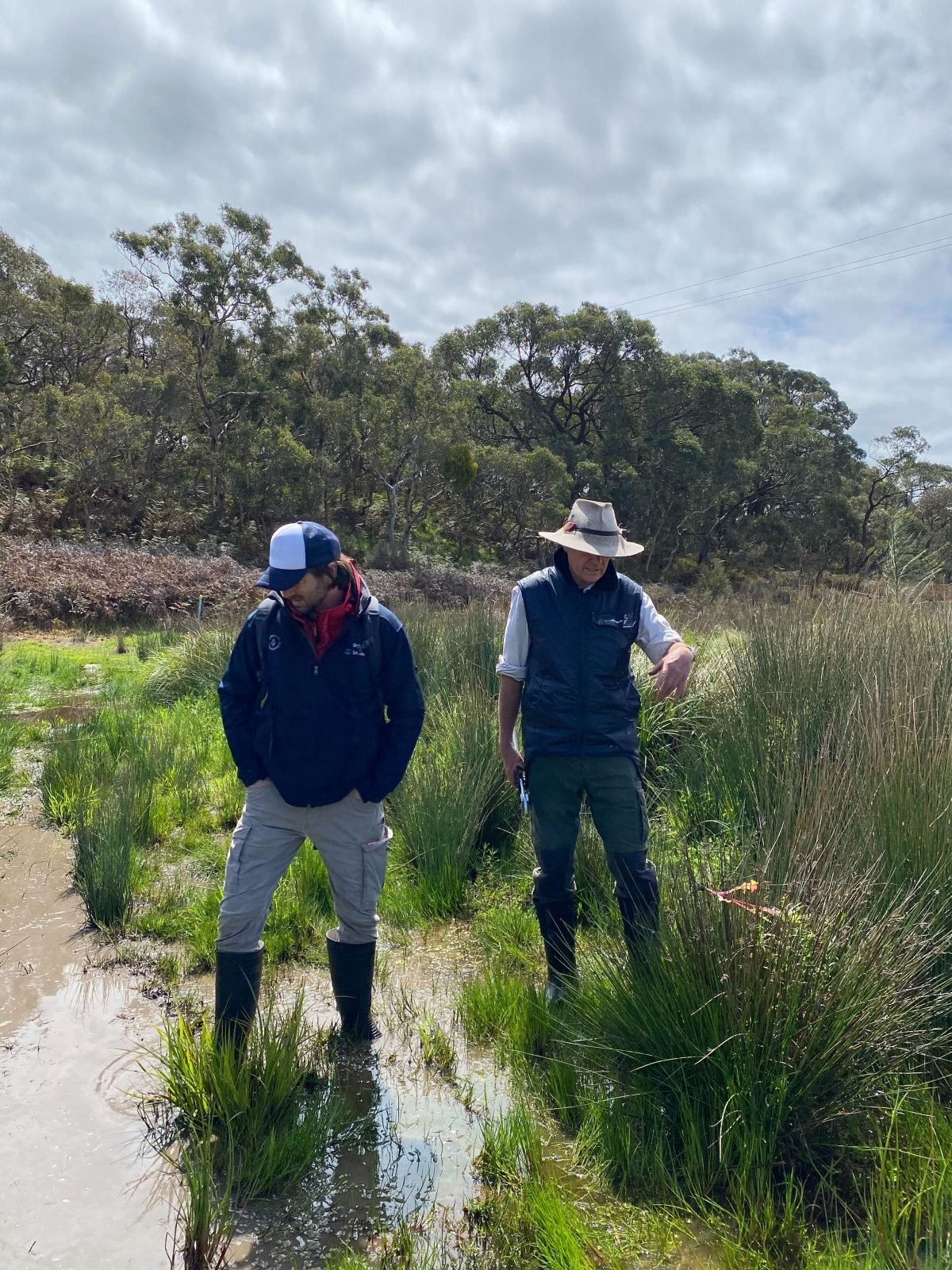Posted 11 Oct

Field Trip to Yundi: A Journey of Nature, Culture, and Connection
This October, MOD. hosted a Nature Festival event alongside John Fargher and Mark Koolmatrie at Yundi Nature Conservancy. A group consisting of children and grandparents, locals, visitors and newly arrived residents, professors and students, vegetation experts and complete beginners joined us for the fieldtrip. Together we spent the day in the Yundi swamplands, learning, playing and caring for nature and culture.
The journey started with a bus ride from MOD. to the conservancy. Anticipation grew as we neared Yundi, a special place that’s been undergoing restoration to revive its biodiversity and Aboriginal values. This work is guided by both scientific knowledge and re-learning Aboriginal values, making it an inspiring example of collaborative environmental care.
Upon arriving, we were welcomed by John Fargher, current landholder of Yundi, and experienced Agricultural Scientist and Natural Resource Economist. John’s passionate about using scientific knowledge to revive biodiversity. But, he’s quick to point out that reconnecting with traditional Aboriginal values from the land is an important part of his regenerative practice. This is where Mark Koolmatrie comes in. Mark is a Ngarrindjeri storyteller, learner, and cultural leader who works to embrace, relearn and share his culture with others through his tour company Kool Tours. With a deep passion for caring for, connecting over, and learning from Country, Mark’s role at Yundi is pivotal in ensuring that cultural practices inform the restoration efforts happening there.

Our first task for the day was building kangaroo barriers to protect young plants, followed by snipping away a patch of bracken to allow more biodiverse species to thrive. Under John’s scientific guidance, we learned how these small actions can make a significant impact on the swamp’s future.

At midday, we gathered for lunch around a fire, exchanging stories with John and Mark. Following lunch, Mark led the group in a traditional smoking ceremony and guided walk, inviting us to reflect on our relationship to the land and the cultural significance of Yundi. Through his storytelling, Mark shared Ngarrindjeri knowledge about the swamp and how his Aboriginal values underpin this knowledge. He shared stories and information from past generations and talked of hopes for this land in the future. It was a light-hearted, inspiring walk around the swamps with Mark, offering participants a deeper sense of connection to the place, its history, and its potential futures.
The afternoon unfolded with more fireside conversations, questions, and reflections as we sipped a native wattleseed drink. As the day wound down, many participants expressed a newfound curiosity about MOD.’s involvement in this type of event. “Why is a museum running a field trip to a swamp?” someone asked. Well, there are many true and overlapping answers. Put simply the work that John and Mark do at Yundi aligns strongly with many of our design principles including; Sustainable for Life, Two-Way Minded, Open-Ended and Participatory. Through events like this MOD. is able to deepen our understanding and relationship to First Nation ways of knowing, work towards offsetting our carbon footprint by volunteering in the swamp, participate in hands-on actions for building better futures, and create space for curious contemplation.
By 4:00 pm, the group was back on the bus, tired but fulfilled. Throughout the drive many expressed a strong desire to return to Yundi, not just as visitors, but as active participants in the restoration of the swamp.
This field trip, supported by SA Water’s Reconciliation Partnerships Program, was an experience of learning, connection, and action. The collaboration between Aboriginal values and scientific practice at Yundi is a powerful reminder that the future of our ecosystems (and perhaps over areas of life) are enhanced by both.